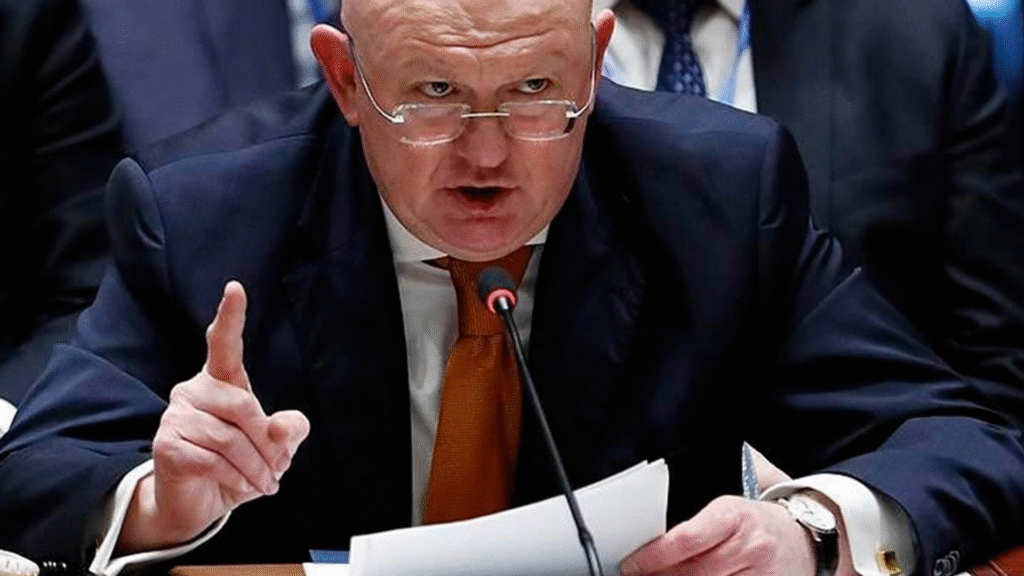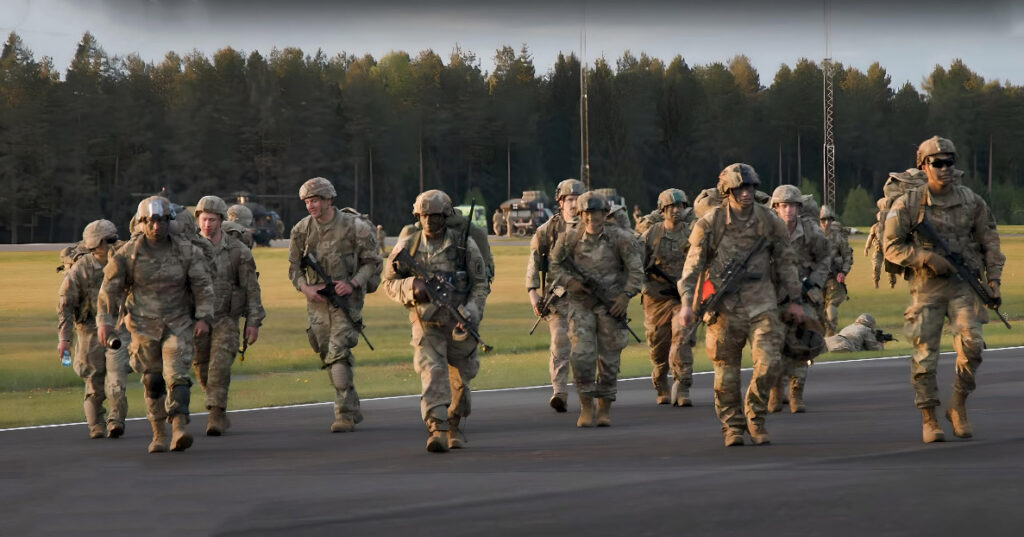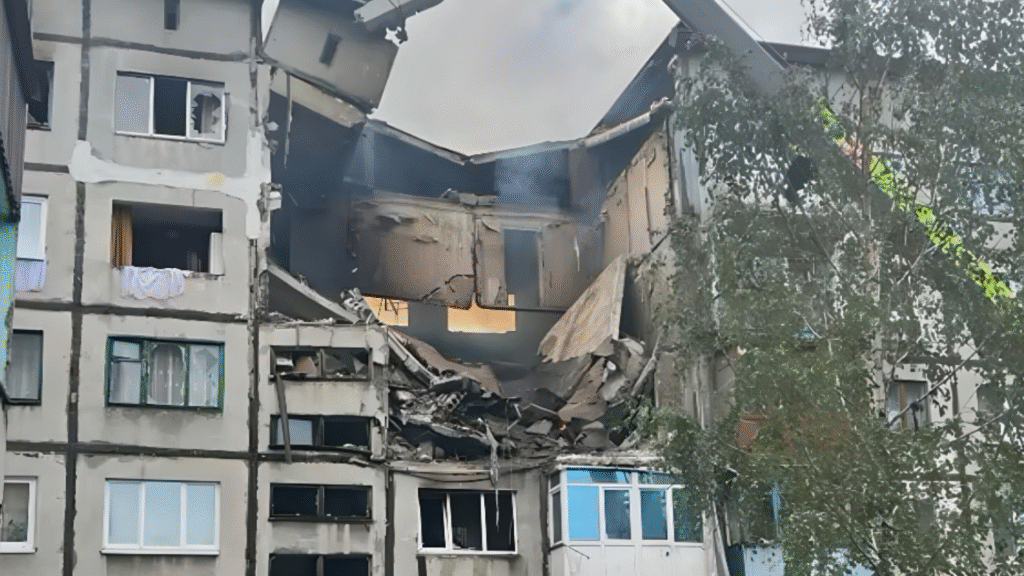As global tensions reach a boiling point, Russia’s Permanent Representative to the United Nations, Vasily Nebenzya, delivered a stark message: Moscow will not relent in its military campaign despite mounting international pressure. Speaking at the UN, Nebenzya declared, “Our goals will be achieved—by peace or by war. We will not back down.” He conditioned any de-escalation on Ukraine halting its mobilization efforts and the West ceasing all military and financial aid to Kyiv. The statement, laced with defiance, has drawn sharp condemnation from Western leaders, who see it as a direct challenge to diplomatic efforts and a signal that Russia is prepared to pay a steep price to achieve its objectives.
The remarks come at a time when hopes for a negotiated settlement are dwindling. In the United States, President Donald Trump, now navigating his second term, expressed profound frustration with Russia’s actions during a candid interview with Fox News. He described recent Russian missile strikes on Kyiv—timed suspiciously with the start of tentative peace talks—as a “personal defeat.” “We were so close to a deal, and then, out of nowhere, rockets start flying. It’s humiliating,” Trump admitted, undermining his bold campaign promise to resolve the conflict within 24 hours of returning to the White House in January 2025. The strikes have not only derailed negotiations but also intensified domestic pressure on Trump to respond decisively, as critics question his administration’s ability to deliver on its foreign policy pledges.
On Capitol Hill, the U.S. is shifting gears toward economic warfare. Senator Lindsey Graham, a close ally of Trump, introduced a provocative bill proposing 500% tariffs on countries that continue to purchase Russian oil and gas. The measure, aimed squarely at Moscow’s economic lifelines, also targets major buyers like China, India, and Turkey, signaling a broader strategy to isolate Russia through secondary sanctions. “We’ve run out of patience. Russia’s playing a long game, banking on outlasting us. If they won’t come to the table for peace, we’ll crush their economy,” Graham said in a fiery Senate speech. The proposed tariffs, if passed, could disrupt global energy markets, forcing nations to choose between affordable Russian energy and punitive U.S. trade penalties. Analysts warn that such a move risks alienating key U.S. allies while driving up global energy prices, adding further strain to an already fragile world economy.
The escalating rhetoric from both sides underscores a perilous moment in the conflict. Russia’s unyielding military posture, coupled with the U.S.’s aggressive economic countermeasures, has pushed diplomacy to the sidelines. The upcoming talks in Istanbul on June 2, already fraught with challenges, now face an even grimmer outlook. With the sounds of artillery and the specter of crippling tariffs looming, the path to peace appears increasingly treacherous. Without a significant breakthrough, the world risks sliding deeper into a protracted and costly standoff, with ripple effects that could reshape global alliances and economic stability for years to come.



